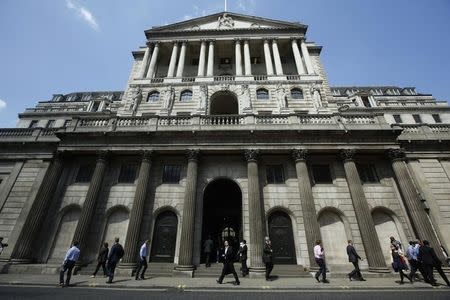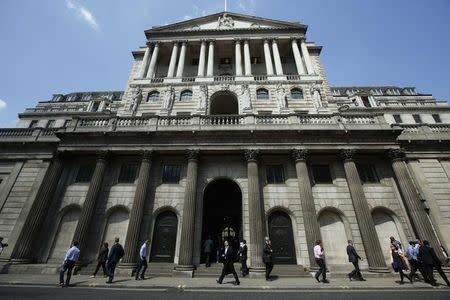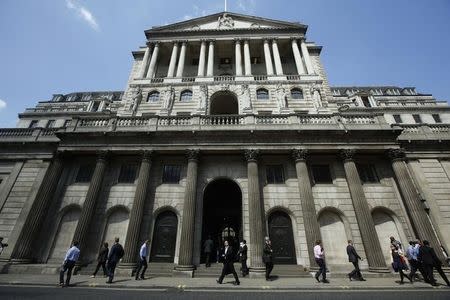Bank of England's Broadbent says underlying interest rates to eventually rise
LONDON (Reuters) - The Bank of England is only likely to raise interest rates gradually, as headwinds to growth and long-term downward pressures on borrowing costs pass, the central bank's deputy governor said on Thursday.
Ben Broadbent said current, very low, inflation- and risk-adjusted returns on investments would probably rise as productivity improved. But he warned this was uncertain and that long-term economic stagnation could not be ruled out.
Broadbent's speech at an economics conference did not discuss Britain's immediate economic outlook, and instead focussed on central banks' powerlessness to do much to affect asset prices or long-term economic growth.
"Over time, trends in real asset prices are determined by real, non-monetary, forces. We may occasionally be prominent actors but it's someone else who's written the script," he told London's Society of Business Economists.
Critics of central banks have said that low interest rates were partly to blame for the financial crisis, by unsustainably pumping up asset prices and encouraging risky lending.
But Broadbent said that the BoE, at least, had been responding to longer-term economic factors - such as a glut in savings from East Asia and an ageing domestic population - that were outside its control.
Where central bank policy did have an impact - such as the BoE's 375 billion pounds of asset purchases - it was to achieve lower real interest rates that would otherwise have come via higher unemployment and an even sharper economic downturn.
Risk-free interest rates are now very low, with Broadbent citing 20-year bonds, which offer a return 0.47 percentage points less than inflation.
Low rates were likely to continue, and helped justify the BoE's guidance that it would only raise official interest rates in a gradual and limited fashion, Broadbent said.
"I'd say that neutral real rates are likely to stay low for some time yet...but that, eventually, as the headwinds previously highlighted by the MPC dissipate, they are likely to rise," Broadbent said.
Very low investment returns had also sparked concern that advanced economies had slipped into a period of long-term or "secular" stagnation - a risk highlighted last week by the BoE's chief economist Andrew Haldane.
Broadbent said it was "anyone's guess" whether this risk would materialise, but that his feeling was that it would not.
"My instinct is to set more store by the very long-term average for both productivity growth, and real interest rates, than the more recent trends," Broadbent said.
He added, however, that this would hinge on renewed optimism about global productivity or a lasting solution to the problems of the euro zone - both things outside central bankers' control.
(Reporting by David Milliken; Editing by Diane Craft)





